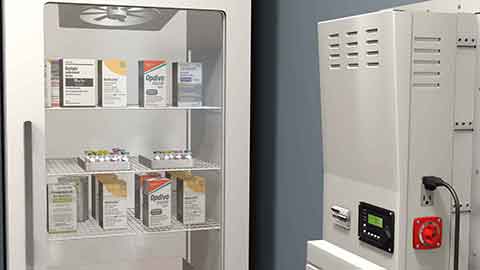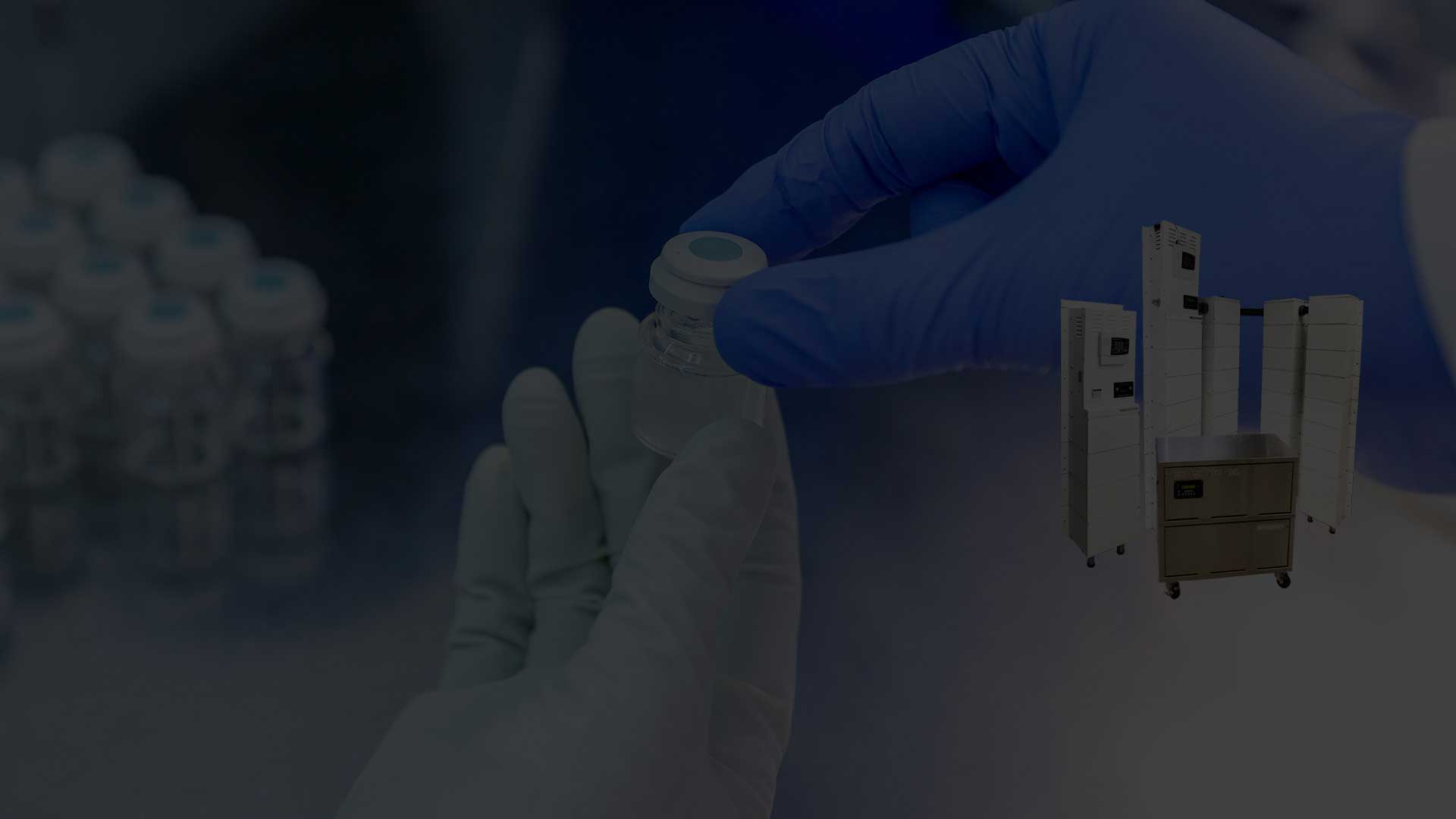24-Hour UPS Battery Backup: Safeguarding Medical Facilities
Time is of the essence in the healthcare industry. Medical practitioners depend significantly on cutting-edge technology to deliver precise diagnoses and best treatment for patients, whether they are undergoing a standard checkup or a potentially life-saving operation. The increasingly complex nature of this technology in the modern digital era makes the need for constant power supply an absolute must.
Think about the consequences if a diagnostic machine suddenly stopped working because of a power surge or if a hospital suddenly lost power during a life-saving operation. Not only are these events potentially fatal, but they can also cause expensive downtime, data loss, and equipment damage. Healthcare facilities use Uninterruptible Power Supply (UPS) systems to avoid these disastrous occurrences.
This all-inclusive guide will cover everything you need to know about uninterruptible power supplies (UPS) for medical equipment, including how they operate, important features to look for, and the best way to install one. If you want to know how uninterruptible power supply (UPS) systems help keep healthcare facilities running smoothly and keep patients safe, this article will walk you through it.
Importance of 24-Hour UPS Battery Backup in Medical Settings
Precision and dependability are essential in complex, high-stakes healthcare. MRI machines, life-saving ventilators, and essential cardiac monitors depend on a constant power supply. Even short power outages or voltage changes may cause patient injury, device failure, and the loss of vital medical data.
Now we have the Uninterruptible Power Supply (UPS) systems, a crucial piece of technology that keeps the healthcare system running smoothly. A backup power supply (UPS) is like an essential power insurance policy; it's always prepared to provide continuous and rapid backup power in the event of a power loss or other disruptive event.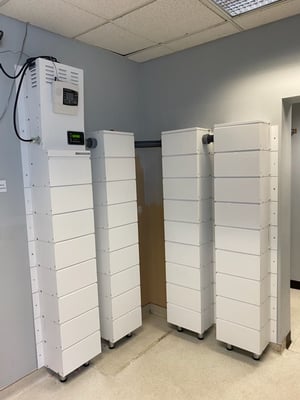
Healthcare institutions' capacity to provide continuous patient care and protect the integrity of precious medical data is safeguarded by this technology, which is more important than just continuity. Underappreciated heroes in a time-sensitive field, uninterrupted power supply (UPS) systems keep vital patient records safe and accessible at all times, allowing doctors to provide their patients the best treatment possible.
Critical Medical Equipment Supported by UPS Battery Backup
In the intricate web of medical care, an uninterruptible power supply (UPS) emerges as a linchpin, strategically tethered to an array of indispensable medical devices. The crux of its significance lies in its role as a fail-safe mechanism for devices that are not only crucial for patient care but are also intricately reliant on an unwavering power source.
Ventilators, which sustain respiratory functions, find their ally in the constant and stable power supply afforded by a UPS. Heart monitors, attuned to the subtle rhythms of life, stand guard with the assurance of uninterrupted energy. The seamless functioning of infusion pumps, responsible for precise and regulated administration of medications, hinges upon the continuous power supply facilitated by a UPS. Moreover, the realm of essential medical equipment extends further to encompass diagnostic imaging devices, delving into realms like MRI machines, CT scanners, and X-ray equipment, where the accuracy of results is directly proportional to the stability of power sources.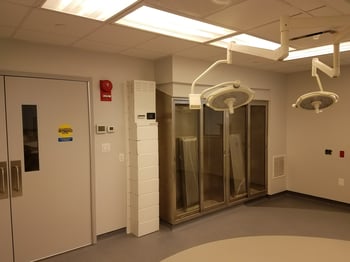
Even the intricate web of laboratory equipment, orchestrating critical tests and analyses, demands the unwavering support of a UPS for seamless and reliable operations. It is imperative to recognize that the significance of UPS transcends this non-exhaustive list, safeguarding an intricate network of devices that collectively ensure the well-being and vitality of patients under medical care.
Choosing the Right UPS Battery Backup System for Healthcare Needs
Patient safety and the smooth operation of healthcare facilities are directly impacted by the choice to choose the proper UPS for medical equipment. If you want to make a smart decision, you need to think about these important factors:
Battery Life and UPS Power:
Before you attach any medical equipment to the UPS, you must first determine how much power it will need in watts. This is known as the load size assessment. Choosing a UPS with a Volt-Ampere (VA) or Watt (Watt) rating that matches the power needs of the equipment is based on this careful assessment.
Determination of Runtime:
Figure out how long the medical equipment can survive on batteries alone in the event of a blackout. The size of the UPS battery bank required to satisfy your unique needs will be determined by this assessment.
Let Us Assist You With Your Backup Power Needs!
Strategy for Future Expansion:
You should think about the capacity of the UPS in light of any future equipment additions to your healthcare institution. Purchasing a somewhat bigger UPS system in advance is usually more economical than replacing it later on due to facility expansion.
Reliability and Scalability:
Think About How Important It Is to Have Redundancy in Your UPS System Before You Implement It. An extra safeguard may be added by setting up several UPS systems. To avoid any interruptions in power to the UPS for medical equipment, a redundant setup ensures that in the case of a breakdown, the second unit can easily take over.
Make sure the UPS system you choose can expand with your medical facility so it can meet all of your developing demands. The ever-changing needs of healthcare operations may be easily met with scalable UPS systems, which provide the option to add more battery capacity or UPS units as required.
Emergency Preparedness: UPS Battery Backup as a Cornerstone in Healthcare Continuity Plans
In the ever-evolving landscape of healthcare, emergency preparedness is non-negotiable. Explore how UPS battery backup systems serve as a cornerstone in healthcare continuity plans, ensuring seamless transitions during power outages and other unforeseen events.
Power Outage Response:
The UPS shows exceptional agility in responding to power outages or disruptions in the incoming utility power. Almost instantly upon detecting a drop in utility power, it transitions to battery power. Within milliseconds, this shift is completed, ensuring that the linked UPS for medical equipment continues to receive power without interruption. In hospital settings, where a power outage of even a few milliseconds may have catastrophic results, this immediate reaction is of the utmost importance.
Inverter Functionality:
The inverter is the central component of a UPS system and plays a critical function in the event of a power loss. This part is in charge of transforming direct current (DC) power from batteries into alternating current (AC), the standard electrical current utilised by most medical equipment. This change is critical to make sure that medical devices continue to work normally even when the power goes off.
Battery Runtime:
The runtime of a UPS's batteries is dependent on the load it is sustaining and the amount of time an outage might last. Depending on the type and battery capacity, the duration of a UPS unit—which is usually measured in volt-amperes (VA) or watts (W)—can vary significantly. Consequently, these considerations are crucial for healthcare providers and facility administrators to make when choosing a UPS system.
Let Us Assist You With Your Backup Power Needs!
Request An AssessmentMaintaining Regulatory Compliance: UPS Battery Backup Solutions in Healthcare
Regulatory bodies mandate stringent guidelines for healthcare facilities to ensure patient safety and operational reliability. Discover how integrating UPS battery backup solutions aligns with these regulations, not only meeting but exceeding standards to maintain compliance and elevate the overall quality of healthcare services.
Strict adherence to regulatory norms is crucial in the intricate healthcare industry. Healthcare institutions are expected to satisfy industry-specific rules and requirements when it comes to uninterruptible power supply (UPS) systems.Both patient safety and the security of vital healthcare records depend on this stringent method. Healthcare institutions should take the following additional rules and laws into account:
UL 60601-1
Underwriters Laboratories has developed this standard as a comprehensive framework for the reliability and efficiency of electrical medical equipment. Electricity security, radiation emission, and resistance to electromagnetic interference are all part of it. Health care institutions may be certain that their UPS systems are built to fulfill the most stringent safety and performance requirements since they are compliant with UL 60601-1.
NFPA 99
A thorough document designed especially for healthcare institutions, the NFPA 99 standard is put out by the National Fire Protection Association. Chapter 6 of NFPA 99 specifies what is needed for backup power systems. Integrating UPS systems is a common practice in these systems to guarantee a smooth switch to backup power in case of emergencies. Compliance with NFPA 99 ensures that healthcare facilities are ready for any emergency that may arise, which in turn improves the safety and well-being of patients.
HIPAA
Strong data privacy and security procedures are required by the healthcare industry under the federal statute known as Health Insurance Portability and Accountability Act (HIPAA). Although HIPAA does not address UPS systems specifically, it stresses the need of continuous power and data integrity. In the case of a power outage or disturbance, a UPS system is essential for protecting electronic health records from corruption or loss of data. The importance of UPS systems in safeguarding confidential medical data is highlighted by HIPAA compliance requirements.
ASHRAE 90.1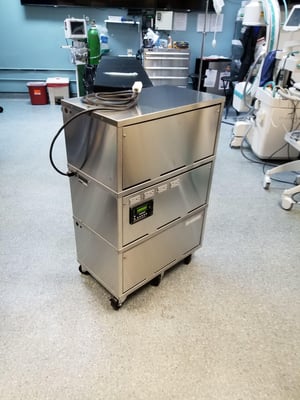
Medical centers and other institutional buildings are required to meet certain energy efficiency criteria outlined in ASHRAE Standard 90.1. Healthcare organizations may lessen their impact on the environment and save money on energy bills with efficient UPS systems that keep the power on.
ISO 9001
One such quality management system standard is ISO 9001, which is known all over the world. The concepts of quality assurance and continuous improvement may be used in the operation and maintenance of UPS systems to guarantee their dependability and efficacy in healthcare settings, even though they are not unique to healthcare.
Elevating Healthcare Resilience: How Our UPS Systems Ensure Uninterrupted Care
Installing uninterruptible power supply (UPS) systems in healthcare facilities has significant practical advantages that affect patient care and operational efficiency in a wide way. Let's take a closer look at these benefits:
Improved Security for Patients
By keeping vital UPS for Medical Equipment running continuously even when the power goes out, UPS systems are vital for patient safety. Continued access to electricity is critical in critical situations like those involving life-support systems or surgical operations. Power outages may have disastrous and even fatal repercussions, but uninterruptible power supply (UPS) systems are there to save the day.
Data Integrity Preservation
Diagnostic information, imaging findings, and electronic health records (EHRs) are vital to the healthcare sector. Backup power supply system’s play a crucial role in protecting the authenticity of this vital information. Corrupted or lost data interrupted medical treatment, and even patient safety are all possible outcomes of unexpected power outages. Having access to correct and up-to-date information is critical for medical practitioners when making important choices, and UPS systems offer the buffer needed to minimize data interruptions.
Dramatic Decreases in Spending
A UPS system may cost more up front, but it will save you a ton of money in the long run. Avoiding downtime and preserving sensitive medical equipment from power surges and fluctuations may save healthcare institutions a ton of money. No more expensive repairs, replacements, or missed income from patient care disruptions. The economic advantages of UPS systems exceed the costs of adopting and maintaining them in the long term.
Made Compliance with Regulations Easier
Strict regulations are in place to guarantee patient safety and data security in the healthcare business. Compliance with these laws is made easier with UPS systems when they are set up and maintained correctly. Healthcare facilities rely on them to keep vital services running even when the power goes out, which is a necessity set by organizations like the Joint Commission. To show that they are serious about meeting these high standards, healthcare practitioners may depend on UPS systems.
Care for the Environment
Energy-efficient UPS systems may help keep the planet habitable. Healthcare institutions may lessen their influence on the environment and connect with green efforts by cutting down on power use and minimizing the negative effects of energy production.
Conclusion
Healthcare institutions rely on uninterruptible power supply (UPS) systems to keep vital medical equipment running continuously. They provide the consistent power that is essential for protecting patients, keeping data secure, and meeting regulatory requirements. Healthcare providers may significantly improve the quality of care they offer while reducing the risk of interruptions by carefully choosing the proper UPS, following installation and maintenance best practices, and adhering to industry-specific laws.
